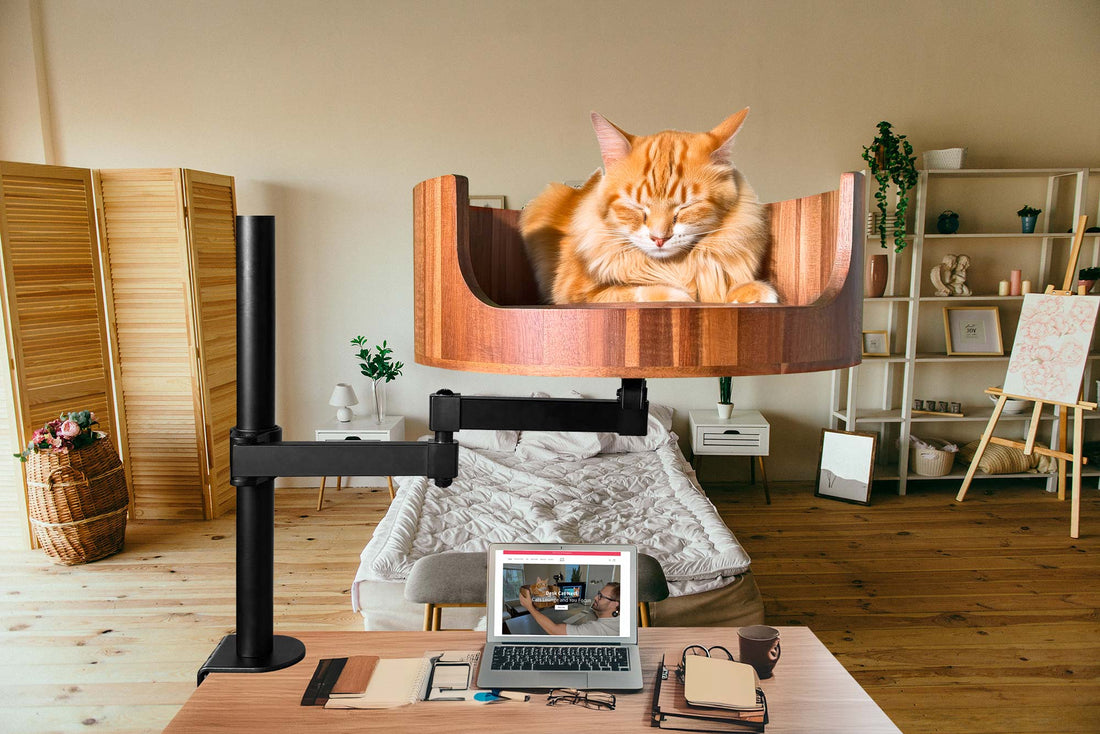
Dogs Eating Cat Poop: Understanding This Behavior
Share
Does your dog have a strange habit of sniffing around the litter box and eating cat poop? If so, you're not alone. This behavior, known as coprophagia, is actually quite common in dogs and can be perplexing to many pet owners. In this article, we will delve into the reasons behind why dogs eat cat poop, how to prevent this behavior, and whether or not it poses any health risks to your furry friend.
Many pet owners have experienced the frustration of catching their dog in the act of scarfing down cat poop from the litter box. While this behavior may seem disgusting to humans, it's actually a natural instinct for dogs. Dogs have a keen sense of smell and are naturally attracted to the strong scent of cat feces. In the wild, dogs would eat the feces of other animals as a way to clean up their environment and remove potential sources of disease. However, in a domestic setting, this behavior can be unsanitary and potentially harmful to your dog's health. Let's take a closer look at why dogs eat cat poop and what you can do to stop this behavior.
1. Dogs eating cat poop is a common behavior known as coprophagia, but it can pose health risks to your furry friends.
2. The behavior may indicate nutrient deficiencies, attention-seeking behavior, or simply a strong attraction to the smell and taste of cat feces.
3. To prevent dogs from eating cat poop, owners can ensure their dogs have a balanced diet, provide enough physical and mental stimulation, and clean the litter box regularly.
4. Training dogs with commands like "leave it" can also help curb this behavior.
5. Consulting a veterinarian is necessary if the behavior persists or if there are concerns about potential health issues.
Why do dogs eat cat poop?
There are several reasons why dogs may engage in the behavior of eating cat poop. One common explanation is that cats' diets are high in protein and fat, which can make their feces appealing to dogs. Additionally, cats have a faster digestive system than dogs, so their poop may still contain undigested nutrients that appeal to dogs. Some dogs may also eat cat poop as a way to mimic the behavior of scavenging for food in the wild.
Health risks associated with dogs eating cat poop
While it may seem harmless, eating cat poop can actually pose several health risks to dogs. Cat feces can contain parasites such as Toxoplasma gondii, which can be harmful to dogs if ingested. Additionally, the bacteria present in cat poop can lead to gastrointestinal issues such as vomiting and diarrhea in dogs. Long-term ingestion of cat poop can also lead to nutrient deficiencies in dogs, as they are not getting the balanced diet they need.
How to prevent dogs from eating cat poop
There are several strategies that pet owners can use to prevent their dogs from eating cat poop. One effective method is to keep litter boxes out of reach of dogs by placing them in rooms that are inaccessible to dogs or installing baby gates. Providing dogs with enough mental and physical stimulation through exercise and interactive toys can also help curb their scavenging behavior. Additionally, training dogs to "leave it" or "drop it" can be effective in preventing them from eating cat poop when they encounter it. Regularly cleaning litter boxes and disposing of cat feces promptly can also reduce the likelihood of dogs being tempted to eat it.
Frequently Asked Questions
Will the Desk Cat Nest help prevent my dog from eating cat poop?
While the Desk Cat Nest is designed to provide a safe and comfortable space for your cat, it may not directly prevent your dog from eating cat poop. It is always best to address any behavioral issues with a professional trainer or veterinarian.
How can I train my dog to stop eating cat poop?
Training your dog to stop eating cat poop involves positive reinforcement, redirection, and supervision. Consult with a professional trainer for specific techniques tailored to your dog's needs.
Is the Desk Cat Nest suitable for large dogs?
The Desk Cat Nest is designed to accommodate cats of various sizes. While it may not be suitable for large dogs to use as a pet bed, it can still serve as a designated space for your cat away from your dog.
Will the Desk Cat Nest fit in a small apartment?
Yes, the Desk Cat Nest is compact in size and can easily fit in a small apartment. Its modern design allows it to blend seamlessly into any living space.
Can multiple cats use the Desk Cat Nest at the same time?
Yes, the Desk Cat Nest is spacious enough to accommodate multiple cats. It provides a cozy and secure environment for your cats to relax and play together.
In conclusion, the Desk Cat Bed is a valuable choice for pet owners looking to prevent their dogs from eating cat poop. Not only does the elevated design provide a safe and comfortable space for cats to rest undisturbed, but it also helps keep their litter box out of reach from curious pups. By investing in a Desk Cat Bed, pet owners can enjoy the peace of mind knowing that their feline friends are safe and their dogs are no longer indulging in this unsavory behavior. Say goodbye to the cat poop problem and say hello to a happy and harmonious home environment with the Desk Cat Bed.



















































